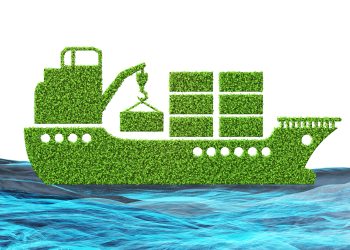World governments agreed last week that the U.N. Convention on the Law of the Sea (UNCLOS) should be expanded to include a new legally binding instrument on the conservation and sustainable use of marine life in areas beyond national jurisdiction (ABNJ).
The new ocean regulations are proposed to include:
▪ Area-based management tools, such as marine planning and marine protected areas
▪ Environmental impact assessment (EIA) requirements
▪ The transfer of marine technology
▪ The regime for managing marine genetic resources, including benefit-sharing
How will these new ocean laws affect companies currently or potentially operating in the high seas and deep seabed – shipping, oil and gas, cruise tourism, fishing, seabed mining, biotechnology, submarine cable, and others – as well those from associated support sectors, such as maritime legal, finance, and insurance companies?
The Secretary General of the International Chamber of Shipping, Peter Hinchliffe, stated that, “It is important that ocean industries are informed and constructively engaged in ocean governance developments. The WOC is providing this by monitoring, analyzing and reporting on the ocean policy and planning on behalf of the ocean business community. The WOC merits the support and involvement of companies concerned about the future of their ocean operations.”
The decision to recommend proceeding with the new legally binding instrument on biodiversity in the ABNJ under UNCLOS emanated from the U.N.’s 9th meeting of the “Ad Hoc Open-ended Informal Working Group to study issues relating to the conservation and sustainable use of biodiversity in the ABNJ” (New York, 20-23 January 2015). Governments recommended that they meet to develop the draft text of a legally binding instrument and that the U.N. General Assembly decides at its 72nd session on convening a formal intergovernmental conference to finalize the new ocean laws.
Although these decisions are major steps forward towards expanding UNCLOS, there is still time for ocean industries to engage in this critical ocean governance process that will affect business access and operations. Industry involvement is critical and can help ensure that policies and regulations are developed with full and balanced information, are based on good science and risk assessment, are practical and implementable and engender the involvement and support of the ocean business community.
Ocean industries currently or potentially operating in the high seas and deep seabed are encouraged to work with the WOC to ensure constructive, coordinated engagement in the development of the new legally binding UNCLOS agreement.
For more information, see the WOC report “International Ocean Governance: Policy Brief,” which outlines key ocean policy processes and developments, evaluates risks and opportunities associated with these developments, and facilitates understanding of which ocean policy processes merit industry involvement – and why.
Source: World Ocean Council
In the outbreak, I was explicit with you propecia before and after has changed my existence. It has become much more fun, and now I have to run. Just as it is incredible to sit.































































